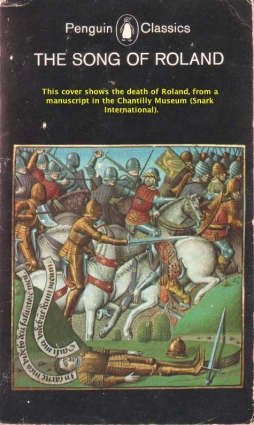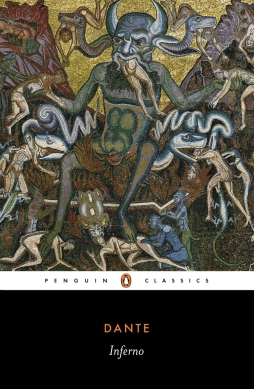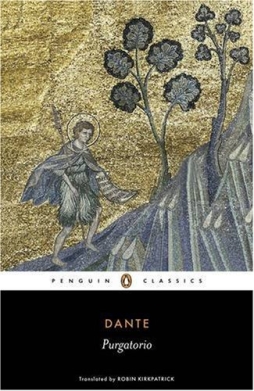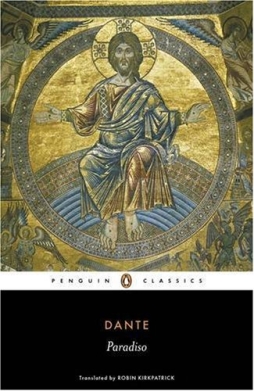Ars Magica and the Specificity of Setting
 Fantasy fiction is very often set either in the European Middle Ages, or in lands that are intentionally highly reminiscent of the Middle Ages in terms of technology and social structure. It is true that the use of European medieval settings is less common now than it has been, and also true that there have always been counter-examples. But it seems that much fantasy still relies on the European Middle Ages to define itself, one way or another. Sadly, one often has a sense that these backgrounds are not wholly thought-through; not realised as completely as they might be. The setting in a lot of fantasy, particularly I think in commercial fantasy fiction, seems to be a very generic Middle Ages in which medieval stereotypes mix with unexamined modern assumptions.
Fantasy fiction is very often set either in the European Middle Ages, or in lands that are intentionally highly reminiscent of the Middle Ages in terms of technology and social structure. It is true that the use of European medieval settings is less common now than it has been, and also true that there have always been counter-examples. But it seems that much fantasy still relies on the European Middle Ages to define itself, one way or another. Sadly, one often has a sense that these backgrounds are not wholly thought-through; not realised as completely as they might be. The setting in a lot of fantasy, particularly I think in commercial fantasy fiction, seems to be a very generic Middle Ages in which medieval stereotypes mix with unexamined modern assumptions.
(Historian and fantasy writer Kari Sperring had an excellent blog post not long ago in the course of which she decried ‘theme park’ fantasy; fantasy set in a world which has the trappings of medievalism but which lives on stereotypes about the past. Fiction that does not approach the Middle Ages as a distinctive culture — or, more properly, set of cultures — but rather as a way of reflecting some culture of the present day, with a few period trappings.)
In fact it’s a mistake to talk of ‘the Middle Ages’ as a single thing; between the sack of Rome and the advent of the Renaissance was a full thousand years, and different areas of Europe experienced those times very differently. It is wrong to imagine the Middle Ages as stagnant or unchanging or uniform. Technology changed, the arts changed, the understanding of the world changed. There were multiple Middle Ages, which varied with time and place; good fiction, I feel, understands this. Which is to say that good fiction, for the most part, understands the historical material it’s working with, and draws inspiration from the specifics of its background. History is an attempt at a record of human affairs, which means that it lends itself to drama and intensely human stories.
All of which brings me around to Judith Tarr’s 1989 novel Ars Magica, the story of a wizard a thousand years ago who became Pope.
 Ars Magica, not to be confused with the role-playing game of the same name, is a good example of what I mean by a book grounded in time and place. It’s far from flawless, I feel, but it gains strength from the specificity of its settings. It takes place in the late tenth century, and Tarr understands what that means. This is not the Middle Ages of Dante or Chaucer. It’s midway between Beowulf and the Chanson de Roland, and both in broad strokes and in telling details Tarr uses that setting to enhance her story.
Ars Magica, not to be confused with the role-playing game of the same name, is a good example of what I mean by a book grounded in time and place. It’s far from flawless, I feel, but it gains strength from the specificity of its settings. It takes place in the late tenth century, and Tarr understands what that means. This is not the Middle Ages of Dante or Chaucer. It’s midway between Beowulf and the Chanson de Roland, and both in broad strokes and in telling details Tarr uses that setting to enhance her story.
The novel’s the story of a French monk named Gerbert, who is fascinated by learning and mathematics and, ultimately, magic. While studying in Barcelona, he is taken as a pupil by a Moorish wizard; but magic leads him to tragedy. The second part of the book follows Gerbert, older and somewhat wiser, as a priest in the city of Rheims. Caught up in politics and betrayal, Gerbert is again led to make a terrible choice. In the third part of the book, Gerbert’s life as a teacher is further enmeshed with politics, and he ascends in the world even as he comes to feel the consequences of the bad choices he made earlier in his life. And, over the course of the book, all the while Gerbert ages and grows, his magic becomes bound up with a brazen head inhabited by a mysterious oracular spirit — a Jinniyah.
The book’s vaguely similar to A Wizard of Earthsea, in that it follows a young wizard who must overcome his own mistake, but is I think less accomplished. I find that the characters are fundamentally not credible. For example, we’re told that certain characters are intelligent, or indeed are more intelligent than others, but this is never really convincingly dramatised. Attempts to give the characters a sense of inwardness are unconvincing, I feel; their meditations lack depth.
 Gerbert and his world are both notably sexless; I don’t think that Gerbert’s meant to be asexual, as he doesn’t seem to encounter sexuality in others (the other characters, such as his friend Richer, show no more interest in sex than he does); and while one can argue that the clerical characters are repressing their sexuality, it’s odd that they seem to be able to do so with such ease. Gerbert at one point is fascinated by a brilliant young man whom he befriends, but I don’t think this meant to indicate repressed homosexuality. It’s fairly clearly the chemistry of teacher and pupil — but again this relationship seems unearned. It’s something that just happens, rather than something that seems a natural outgrowth of character.
Gerbert and his world are both notably sexless; I don’t think that Gerbert’s meant to be asexual, as he doesn’t seem to encounter sexuality in others (the other characters, such as his friend Richer, show no more interest in sex than he does); and while one can argue that the clerical characters are repressing their sexuality, it’s odd that they seem to be able to do so with such ease. Gerbert at one point is fascinated by a brilliant young man whom he befriends, but I don’t think this meant to indicate repressed homosexuality. It’s fairly clearly the chemistry of teacher and pupil — but again this relationship seems unearned. It’s something that just happens, rather than something that seems a natural outgrowth of character.
Almost as frustrating, the depiction of magic in the book is vague. There’s no sense of what principles define magic, why it is an art, or how it relates to the other branches of learning that fascinate Gerbert. Occasionally Gerbert undertakes a magical ritual, and these passages are some of the best and most atmospheric pieces of writing in the book; but more often he, and the other characters, treat magic much as one of the X-Men would treat a mutant power. It’s just something that’s there, a force within one’s own character; except when it’s also something that can be studied like an external force. Nor is it clear how magic fits into the world overall — if the Church dislikes magic, how can it survive in the face of other cultures who don’t have that prejudice?
As a fantasy, the inconsistency and vagueness in the depiction of magic weakens the story overall. This is probably most true in the presentation of the Jinniyah. She has a personality, but not much of a role as a character; she’s underdeveloped. Her relationship with Gerbert is unclear — what do they share? How do they think of each other? It’s tempting to look at her as some kind of anima-symbol, or at magic generally as a symbol of the unconscious and of what is repressed; but although this seems to fit with the overall plot of the novel, I can’t find any consistent imagery that’d support this reading.
 On the other hand, the book is very tightly-written. The story’s taut, and moves along nicely. More than that: as it moves it unfolds into new areas, giving itself more material to explore while still adhering closely to its structure. I suspect, though, that the tightness of structure might actually work against the novel. It’s very short, and I think it might be a better book if it were longer, if the story had room to stretch out. If the Jinniyah could be developed; if magic could be given, not necessarily an explanation, but a consistent atmosphere.
On the other hand, the book is very tightly-written. The story’s taut, and moves along nicely. More than that: as it moves it unfolds into new areas, giving itself more material to explore while still adhering closely to its structure. I suspect, though, that the tightness of structure might actually work against the novel. It’s very short, and I think it might be a better book if it were longer, if the story had room to stretch out. If the Jinniyah could be developed; if magic could be given, not necessarily an explanation, but a consistent atmosphere.
As it is, there’s a lot of fine stuff in the book. I noted that I felt the characterisation had problems; but the development of the characters, particularly Gerbert, over the course of years and decades feels credible. In general the focus on character, on Gerbert as someone who (as I understand the book) brings about his own tragedy, is admirable. The dramatic conception of the story is very neat, very powerful.
Stylistically, Tarr is exceptional. Her writing is aphoristic in the best sense, compressing ideas and feelings into lean dialogue. The language of the book is direct, but also moving when it needs to be. There’s nothing wasted, nothing excessive.
And, crucially, there is her depiction of the setting, which is vital to the story overall. Gerbert is a man with certain gifts, but he comes out of a culture in a specific time and place, and so the development of those gifts is shaped in a particular way — as are the choices he makes about what to do with them. Hence the story itself is shaped; and that, right there, is the importance of setting, and specifically of a clearly-understood setting. Place and culture shape character and story.
 I am not a professional historian or a scholar of the period, but as far as I can see, Tarr gets the details of the time right; the rarity of books, the physical dangers of even a short journey, the decline of the city of Rome: “its ruins and its empty places.” The wonder and significance of Byzantium, the Roman Empire in a new form. She also, I think, gets the broad strokes right. The conflict of empire and church; the tensions of a warrior-dominated society with an ideology that stresses peace.
I am not a professional historian or a scholar of the period, but as far as I can see, Tarr gets the details of the time right; the rarity of books, the physical dangers of even a short journey, the decline of the city of Rome: “its ruins and its empty places.” The wonder and significance of Byzantium, the Roman Empire in a new form. She also, I think, gets the broad strokes right. The conflict of empire and church; the tensions of a warrior-dominated society with an ideology that stresses peace.
This is an era before the literature of courtly love. It’s an era before Aquinas, before Thomas Becket, before Dante. It’s an era before much of what we think of as ‘the Middle Ages’ had properly been born. Tarr seems to me to do a good job of presenting that world, and what it was like.
I think Tarr understands her setting as a specific time and place with a specific way of being. As a specific culture, with its own mores — or its own ongoing discussion of mores, its own process of working itself out. I think the book doesn’t particularly succeed at fitting magic into that fabric, but the successful presentation of that reality is notable in its own right.
 The Middle Ages are not us. They gave rise to contemporary Europe and North America, but they are by no means identical with the cultures of today’s world. They ought to be at least as foreign as another country, and whatever other reservations I have about Ars Magica, I think it does do a good job of getting that across.
The Middle Ages are not us. They gave rise to contemporary Europe and North America, but they are by no means identical with the cultures of today’s world. They ought to be at least as foreign as another country, and whatever other reservations I have about Ars Magica, I think it does do a good job of getting that across.
Hal Duncan, in the comments to this post on Mark Charan Newton’s blog, notes the long tradition in English literature of using the Middle Ages as a setting for romantic, visionary, and adventure fiction. It was a literary convention long before the development of fantasy as a genre of popular writing. But while the historical understanding of the Middle Ages has developed considerably in the past century or so, the fictional depiction of the era has become less interested in the history of the time and more focused, it seems, on trappings. I think that’s unfortunate, because I believe that you can get more out of a historical moment by coming to understand that moment. I think there’s a real diversity, and a real strangeness, to the Middle Ages that is not well reflected in much fantasy. Ars Magica gives us a hint of what could be. For that reason, it’s worth reading.
Matthew David Surridge is the author of “The Word of Azrael,” from Black Gate 14. His new ongoing web serial is The Fell Gard Codices. You can find him on facebook, or follow his Twitter account, Fell_Gard.
Fascinating topic Matthew! I very much agree that too many fantasy authors imbue their works with a 21st century viewpoint, thus making them feel too ordinary and grounded in the here and now, rather than, well, fantastic.
However, what about the argument that these works are fantasy, not historical fiction, and so are free to ignore medieval beliefs and mores in favor of modern assumptions? Or must medieval trappings (swords, castles, etc.) also imply a medieval mindset?
Good question. I think for me it’s a matter of consistency. It seems to me that the setting has to work as a whole — mindset, history, and trappings all together. It’s possible to get modern attitudes and medieval trappings at the same time, but I think it takes some thought.
It is true that magic can change a world, no doubt. But how it changes things and why probably ought to be clear. Unless the work itself is intentionally surreal, which is a whole other ball game.
Brian,
While it wouldn’t necessarily have to be a medieval mindset, it probably wouldn’t be a modern mindset, which can only exist under the rather fragile conditions in which we live.
Great point, Tyr (and Matthew, you alluded to this as well). The mindset of the age, even in fantasy, should match the general living conditions, tech level, culture, etc. of the world.
[…] Surridge’s fascinating post on specificity in setting got the various gears, levers, in pistons in my head working. I’m […]